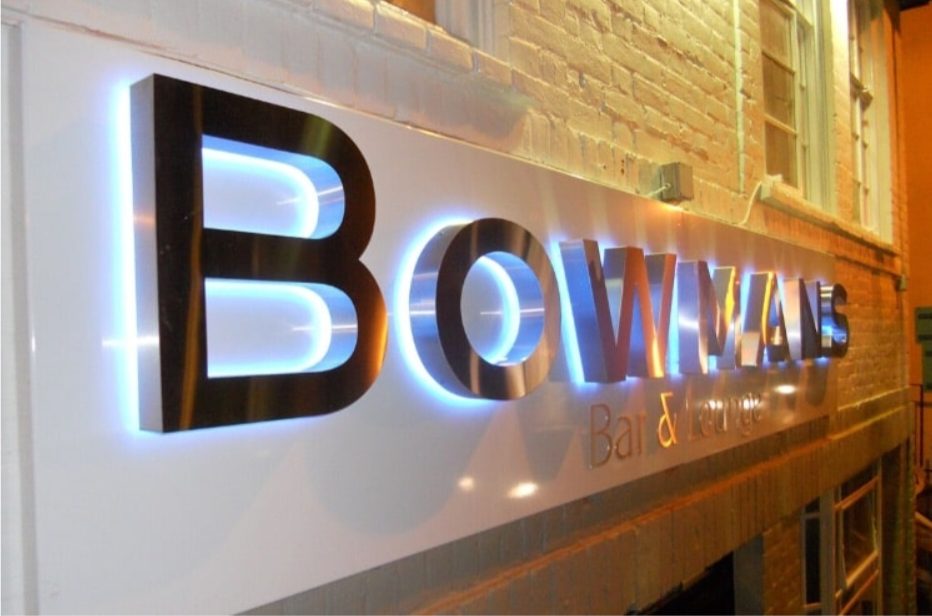
One of the easiest ways of establishing and understanding commercial common sense is to look for new places and avenues to expand. In the interest of progressing profits and an increased market share, industries of all kinds tend to hope for new markets rather than trying to crack established ones.
However, every big fish wants to expand to continue growing and becoming an oversized operation. Every new name in the industry wants to find its niche in this type of dynamic, but the hardship of doing so is more than apparent. As such, everybody is waiting in hopes of jumping into new digital ground and establishing themselves in the market.
One of the best ways to think of this situation is to see the raw numbers of a potential market. You’re looking at the population, the demographic make-up, and the financial capabilities of the would-be consumers. It takes a bit of research, a lot of advocating, and a tremendous amount of preparation if the launch in a new market is to be successful, especially when met with eagerness.
From the outside, one of the most interesting parts of this dynamic is to look at various markets and quickly analyze their upside. For the most part, the advantages and pieces of hopefulness are glaring, which is why we wanted to put them in this article.
As the name suggests, we are specifically looking at online gambling (iGaming) markets, trying to see where the next big expansion ground awaits!
Contents
What are operators looking for in emerging markets?
The term ‘emerging market’ in the context of gambling represents a jurisdiction that has yet to establish itself as completely viable or set up. It’s a market that requires a certain level of refining, even if is upside shows that it can play a key role in attracting big name operators, together with their big funds and job creation opportunities.
There are several factors that they’re looking for:
- Regulatory openness or progress — the willingness in both the official political and social discourse to discuss and propose regulatory openness is something that we always look for in emerging markets. If there is a sense of growing support for the liberalization of digital gambling, there is a clear sign pointing upward.
- Big population — the more, the merrier! If a country has a standard population with a lot of citizens able and willing to access iGaming products, the theoretical market share becomes bigger, opening things up for big opportunities.
- Younger demographic — young people tend to be more tech-savvy due to their familiarity with it from their formative years. In this sense, youth translate as a higher degree of willingness to play games of luck and bet on sports.
- Mass technological availability — for many markets, the idea of access depends on both financial capabilities and technological infrastructure. As Statista’s worldwide mobile penetration rate study suggests, smartphones have become increasingly available worldwide, with Latin America and Africa showing incredible growth rates. This type of movement toward mobile gambling has allowed the iGaming industry to progress to this degree.
What regulators need to set up and clarify
When it comes to regulatory requirements for emerging markets, we look at their ability to make it worthwhile. Things need to be financially feasible, but also protective of the population. The lawmakers who legalize and integrate online gambling want to make sure that they don’t rush things in such a way that it creates ire in the civil society.
Firstly, they need to establish a very clearly defined licensing system. We’re talking about standards and parameters, monitoring, and a penalty system that would deter vetted operators from breaking the law.
Secondly, they need to set up a taxation policy that is conducive to proper revenue gathering now that they legalized iGaming. Naturally, the taxation policy cannot be too strict for either operators or players since it would deter both from actually creating consumption.
Thirdly, there needs to be clear language regarding integrated details of online gambling. Casino offers must have their own set of rules, and responsible gambling measures must be mandatory to the point that civil society doesn’t feel like the population is exposed.
Once these things are in tune, things start going forward.
Brazil — still threading the needle
When it comes to online gambling, Brazil is halfway there. At the end of 2023, Brazil passed the 14790/2023 Law, which opens up the sports betting market. Starting in 2025, the entire process moved towards setting up in earnest, with the Secretariat of Prizes and Bets starting to dish out licenses for sports betting platforms.
However, the casino gaming aspect is still up in the air. Following a bill that passed through the lower chamber of its legislative body (Chamber of Deputies), the upper one (the Senate) shelved the initiative to legalize slots and table games in a legal context. This type of initiative has been in the air since 1990. However, the landmark legalization is still a work in progress.
Brazil has a population of over 212 million people (number 7 globally), with 91% of its population being urban. According to Worldometer’s demographic analysis of Brazil, the median age is 34.8 years, showcasing a very young population.
It’s no wonder that a sports-crazed nation like Brazil began with sports betting in this legalization process. As such, it’ll be very interesting to see if there is movement towards integrated and legal online casino gaming.
India — infinite potential
India is, at this point, the most populous country on Earth, boasting almost 1.5 billion people and accounting for almost 18% of the world’s population. Given the rate of expansion, it’s no wonder that their demographical make-up shows that the median age is a very, very young 28.8 years. India has been rising in value for tech companies, showcasing a penchant for tech-savvy citizens across all ages.
Gambling, in general, attracts people from states like Goa, Daman, and Sikkim, with Maharashtra taking the cake as the most gambling-centric state. The latter one is an interesting act since online gambling is, in fact, a legal offense in that state.
The Information Technology Act 2000 is the most interesting side of this idea discussion since it oversees cybernetic activities in the country without having a direct stance on gambling or betting.
As far as 2009, which is an eternity ago, an article on Indian online gambling from The Indepenent speculates that the gambling market was as valuable as $60 billion, and more than half of it was from illegal means. Nowadays, with even more money at stake, mobile access, and 200 million more people, this figure must surely be much higher.
Currently, the ambiguity of federal legislation makes it so that online gambling is a matter that individual states can look into. For examples, Andrha Pradesh and Telangana have banned it since 2020. The aforementioned states that have the most casinos are those where online gambling is, in fact, legal.
As such, passing federal-level legislation is very hard for a country like India. Since it’s up to each state to decide how it proceeds, the Indian market is rather a collection of smaller but highly potent markets.
Nigeria — the African powerhouse
Nigeria is one of the most important hubs of population growth, economic ascension, and gambling has been starting to rise in importance. With circa 238 million people, Nigeria ranks at number 6, right above Brazil. In terms of median age, we’re talking about a whopping 18.1 years.
Things have started to become quite straightforward and admirably efficient in Nigerian gambling. As reported in an article on a Supreme Court ruling, Nigeria’s various states can determine how they treat gambling, including the matters of legalization and management.
In this way, you have the primary instance of this due process that happened in Lagos (the state), along with Enugu, Imo, and Oyo, setting themselves up in such a way that has created an uptick in clarity. They implemented KYC procedures, have demanded transparency, and have made sure that growth has the support of clear regulatory demands.
As such, the number of vetted online gambling platforms has exceeded 40 brands, with various native and international options allowing Nigerians to bet safely and legally.
Conclusion
To conclude, we can clearly see that there needs to be a trickle-down effect in terms of legislation if emerging markets are to experience a breakthrough. Central juridical authorities must clarify things before there can be uniformity.
If you’re from any emerging market, things may look favorably in the future, given the numbers that the industry racks up. However, don’t forget to play responsibly if you engage with this activity!









